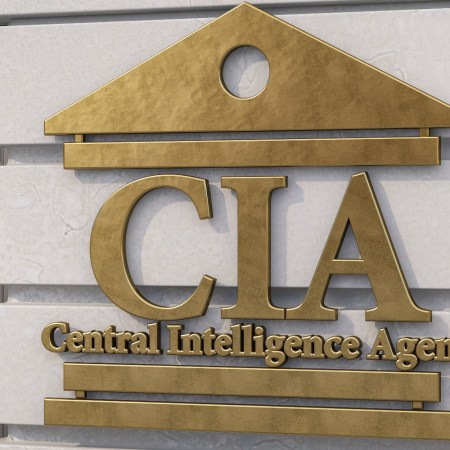At the U.S. Embassy in Athens, Greece, there is a simple bronze plaque at a building that houses the U.S. Marine Security Guard detachment.
It reads: “In memory of Richard S. Welch, slain at this place December 23, 1975, in the service of his country. Personal sacrifice is the price of freedom.”
Welch was the CIA station chief in Athens at the time. But then a relatively simple murder plot ignited a complex international incident.
“On the night of December 23, 1975, Dick and his family attended a Christmas party at the American Ambassador’s residence,” a CIA dedication reads. “Upon returning home, Dick exited the car to open the main gate. A man appeared amid the darkness and called to Dick. As Dick turned, the man shot him. The wound was fatal.”
Greek police searched for suspects, but it wasn’t until five days later that a militant organization calling itself the November 17 Organization claimed responsibility. The group formed after the collapse of a military dictatorship in Greece in 1974 and became one of the “most notorious” radical leftist elements in the country, according to the U.S. intelligence community.
Welch, 46 years old at the time, was at the time the highest-ranking U.S. intelligence officer to be the target of a political assassination. Over the next three decades the November 17 Organization “was Greece’s most lethal terrorist group, killing at least 23 individuals, including four Americans,” the U.S. reports. (The State Department only took the November 17 Organization off the designated terrorist list in 2015, deeming it no longer a threat 40 years later.)
But while local law enforcement struggled to arrest Welch’s actual killers, much of the blame for his murder fell on the shoulders of radical transparency advocates, including a group called the Fifth Estate, and their magazine Counter-Spy. Through the magazine, the group publicized the identities of CIA officers and details of CIA operations abroad.
The year before, Counter-Spy had included Welch’s identity and his connection to the CIA in a list of high-ranking intelligence officers abroad. A Greek publication later published Welch’s home address.
“I certainly don’t know who pulled the trigger when Richard Welch was killed. But until more facts are known, I believe it reasonable to entertain the notion that the Fifth Estate and Counter-Spy may have played some role, however indirectly,” David Phillips, president of the Association of Retired Intelligence Officers and friend of Welch’s wrote after the slaying.
Doug Porter, a spokesperson for Fifth Estate, defended his group, saying Welch’s link to the CIA had been aired several times before, by publications from Germany to Peru.
“We reveal the names of agents who have already been revealed in the countries,” Porter told NPR then.
Undeterred by death threats, Porter told NPR the magazine would continue to publish information on undercover officers.
“We intend to continue our activities, not only directed towards the CIA, but also towards other institutions which threaten the basic principles on which this country was founded,” he said.
The U.S. government did not accept that rationale: Welch’s death helped spurn the passage in 1982 of legislation called the Intelligence Identities Protection Act (IIPA), which essentially made it illegal to disclose the identity of an intelligence officer or asset.
“This carefully drawn act recognizes that the revelation of the names of secret agents adds nothing to legitimate public debate over intelligence policy. It is also a signal to the world that while we in this democratic nation remain tolerant and flexible, we also retain our good sense and our resolve to protect our own security and that of the brave men and women who serve us in difficult and dangerous intelligence assignments,” then-President Ronald Reagan said ahead of signing the legislation into law.
It wasn’t until more than a quarter century after Welch’s murder that the alleged killers were at least partially brought to justice. In 2003, a Greek court convicted 15 people for their roles in the November 17 Organization.
The court did not bring charges specifically for Welch’s killing, because the statute of limitations had passed, The New York Times reported.
“It’s the best we can hope for,” Richard Welch’s son, Tim, told reporters then. “If we can’t get them for my father’s death, at least they’ll spend the rest of their lives in jail.”
Counter-Spy continued publication until 1985.
This article was featured in the InsideHook newsletter. Sign up now.
























